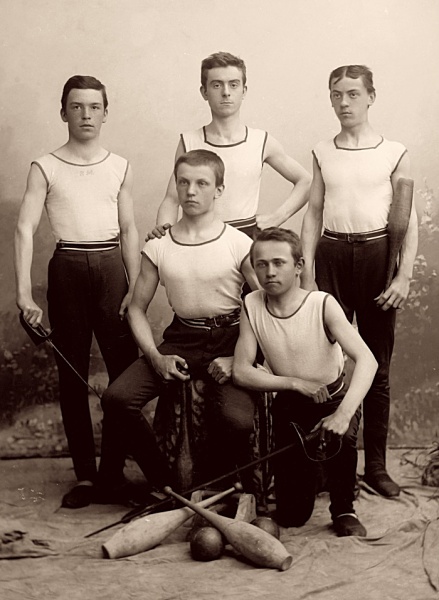TIME Magazine reports on recent research showing the benefits of having outsiders, or even weirdos who don’t fit in, come to your meetings. It turns out that teams can make better decisions when there is an outsider present. Although this makes the meeting pretty uncomfortable, and folks tend to think it’s a worse meeting.
Even though they get better work done.
In one part
The study was pretty brilliant. It used members of Fraternity and Sorority houses at three American universities, including one strongly affiliated with a conservative religious group. This allowed them to have strong intra-group cohesion that should mimic even the strongest workplace alliances.
Groups of four were created, and put into an environment that would encourage competitive, house-centric feelings.
In the first experiment, each group was all from the same house. One of them was taken out to do inane things, then returned to the group. The ones who never left had already started, and had to bring this one up to speed. Plus, they had bonded a bit (even in this short amount of time) and so looked at the returning player as an outsider of sorts, even when from the same house.
Teams that had this happen performed better than teams from all the same house where no one left.
In the second test, they made the leaving member someone from another house. The rest of the team was from another house. This made for much harsher self-reports of the experience (the teams thought that the decision making process was uncooperative,
What was really interesting is that when asked to play jury, the all in-crowd groups thought they worked very well together but ended up convicting the wrong guy. Groups with an out-person hated the process, said it was tortuous, but made the right decision.
So someone’s life could hang in the balance here.
What does this have to do with anything?
If you want to make better group decisions, you need to have someone who makes you uncomfortable.
Great, huh?
The problem for that person is that they will never be seen as anything but a roadblock or at best an irritant who disrupts the group’s better process. We are made uncomfortable when we can’t just “follow the leader” in monkey fashion but actually have to think. It’s hard. It makes our heads hurt. We’d rather have “team players” who know how to “work together to a common goal” and “get along” with everyone else. But for groups to make better decisions, they need to have this outsider show up.
Most Hidden High Potentials play this part easily. They have a hard time fitting in, for reasons I’ve explored earlier, so just by being in the room with affect the deliberation process. Companies should pay for them to do nothing but show up for meetings and be a pain in the patootie.
But even if you were, you would always be on the outside, never part of the inner circle. There was a guy that Obama had asked to be part of his cabinet from the other party. He declined after he realized he would never be a real part of the team, he would always be fighting a losing battle.
And that’s the point.
It’s hard to be the permanent outsider in your world, but it is an important role. It’s the role of “prophet” to the Priests and Kings of this world. It doesn’t pay well and nobody thinks highly of you until well after your dead and gone.
Hard role to play.
Can you take the role on? Can you join the team knowing that you will never belong, and that your “team” outside will see you as a traitor who accomplishes nothing, all for the sake of helping the great team (e.g., your country’s leadership) make better decisions?
Phillips, Katherine W.; Liljenquist, Katie and Neale, Margaret (2009). “Is the Pain Worth the Gain? The Advantages and Liabilities of Agreeing with Socially Distinct Newcomers [PDF]“.
Image credit: Rugby Union players from Charters Towers (1904). Via Queensland State Library, collection.


